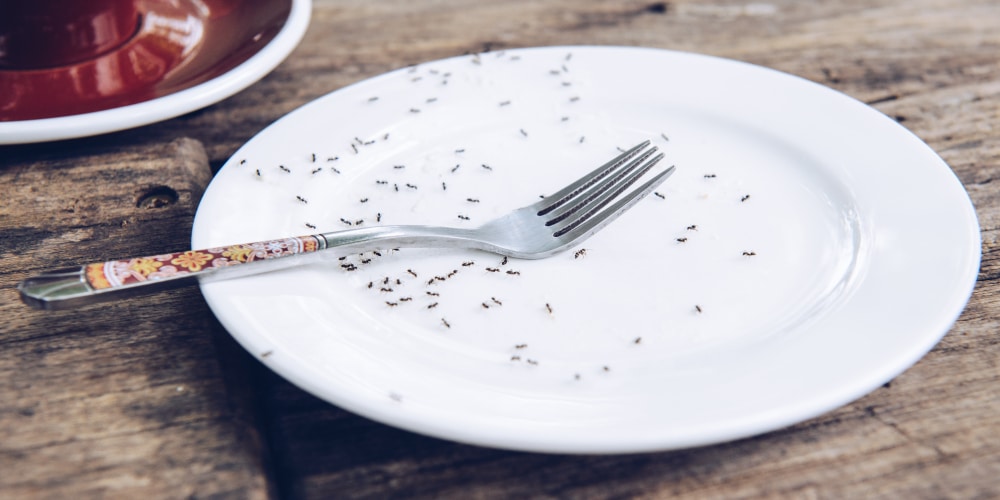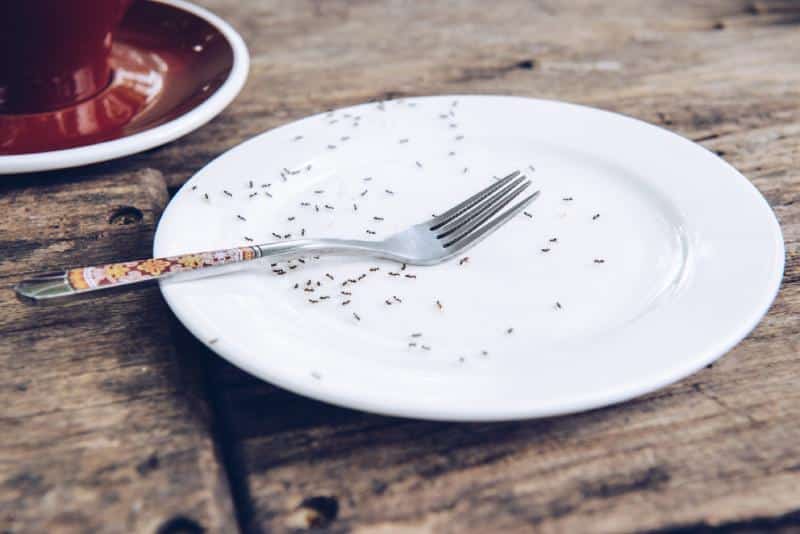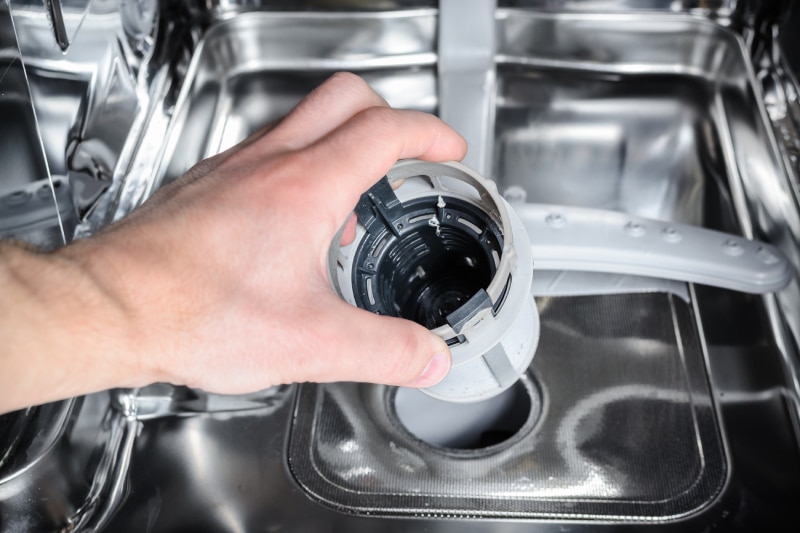
There’s nothing quite as frustrating as finding a pest problem that’s gotten out of control or invaded an area of your house that sees daily use. Seeing ants in your dishwasher can lead to frustration, confusion, and sheer disgust. Before you get tempted to throw the whole machine out (and the dishes too), read through this quick guide to know what to do if ants invade your kitchen or your daily-use appliances.
What are ants?
Ants operate as a group. That’s why it’s common to go from seeing zero aunts to dozens in the blink of an eye. Ants, especially little black ants, are found throughout the U.S., most commonly from June to August. They eat all kinds of materials as food, like grease, oil, meat, fruit, juice spills, and nectar.
What attracts ants inside your home?
It’s important to understand why there are ants in your dishwasher. Like many household pests, ants are always searching for food, water, and shelter. In the search for food, scout ants leave a colony in search of nutrients, led by their incredible sense of smell. Once they find a source of food, they’ll return to the colony to alert the others and bring help.
Ants are attracted to moisture, sweet smells, and food particles — all present in most household dishwashers. How are ants getting in your dishwasher? If they smell food crumbs that didn’t make it down the drain, it’s easy for them to make their way in. Ants get in the dishwasher by finding a minuscule crack or break in your dishwasher’s seal and sending a message of bounty back to the colony.
Are ants harmful?
Ants are more of a nuisance than a danger. While they can contaminate food, ants pose a very low risk to humans. Small black ants have stingers, but they’re so small they can’t harm a human.
Carpenter ants, Argentine ants, and odorous house ants don’t bite and are relatively harmless. Black ants are the species most commonly found in household appliances like dishwashers or laundry machines.
How to get rid of black ants in your dishwasher
If black ants or carpenter ants are in your dishwasher, you’ll need to be extra careful removing them. Because your dishwasher sanitizes the items you use to consume food, strong chemicals and harsh pest treatments aren’t considered safe. That said, there are a couple of safe DIY treatments you can use that won’t render your dishwasher useless.
Clean the dishwasher
Clear your dishwasher of anything that could be attracting the ants, like stuck-on food particles. Take out any removable components, like the utensil holder. If you have one, clear your drain trap. Wipe out the exterior with warm water to remove any residue. You can use dishwasher-safe cleaners, but make sure they don’t have extra-sweet odors that might attract more ants.
Don’t Use Insecticides
It may seem like the next best step, but using insecticides can often exacerbate the problem and it’s easy to do this incorrectly. Call Hawx Pest Control instead for a service visit and customized treatment(s).
Run an empty cycle
Run a full cycle on your hottest setting without any dishes in the washer. The heat, force of the water jets, and forced draining may help take care of any ants hiding out of plain sight. Afterward, you can flush the drain with vinegar and baking soda to push any remaining particles or pests away from the drain trap.
Premium pest control services
If you think ant colonies are present in or around your home, call Hawx Pest Control. The trained technicians at Hawx are up-to-date on the latest treatments, technologies, and available solutions, making them experts in restoring a relaxing and safe atmosphere to your home.
Our three-part solution of inspection, targeting, and barrier creation addresses the present pest problem and creates a shield that reduces the chance of new pests moving in. At Hawx, we understand your home is a sacred space. Let us help you keep your favorite space free of pest concerns.
RELATED POSTS




